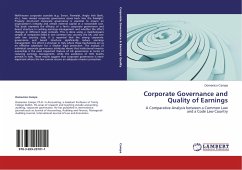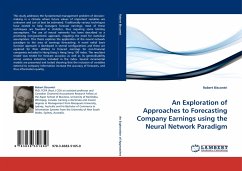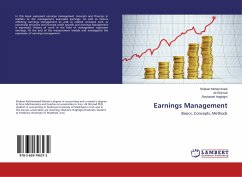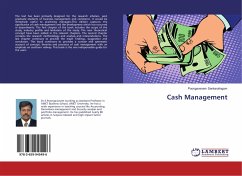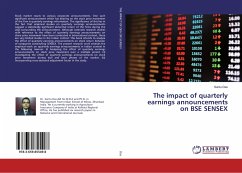Well-known corporate scandals (e.g. Enron, Parmalat, Anglo Irish Bank, etc.), have moved corporate governance issues back into the limelight. Properly structured corporate governance is essential to ensure an organization's integrity and attract external capital at a reasonable cost. This book examines the efficacy of a firm's corporate governance and board structure in curbing earnings management and whether the effect changes in different legal contexts. This is done using a matched-pairs sample of companies listed in one common law country, the UK, and one code law country, Italy. It is reported that the strong corporate governance and board structure significantly reduce earnings management. The effect is stronger in Italy where these mechanisms act as an effective substitute for a weaker legal protection. The analysis of individual corporate governance attributes shows that institutional investor ownership is the most important feature of UK governance in terms of reducing earnings management, while the avoidance of CEO duality prevails in Italy. These results suggest that corporate governance is more important where the law cannot ensure an adequate investor protection.
Bitte wählen Sie Ihr Anliegen aus.
Rechnungen
Retourenschein anfordern
Bestellstatus
Storno

